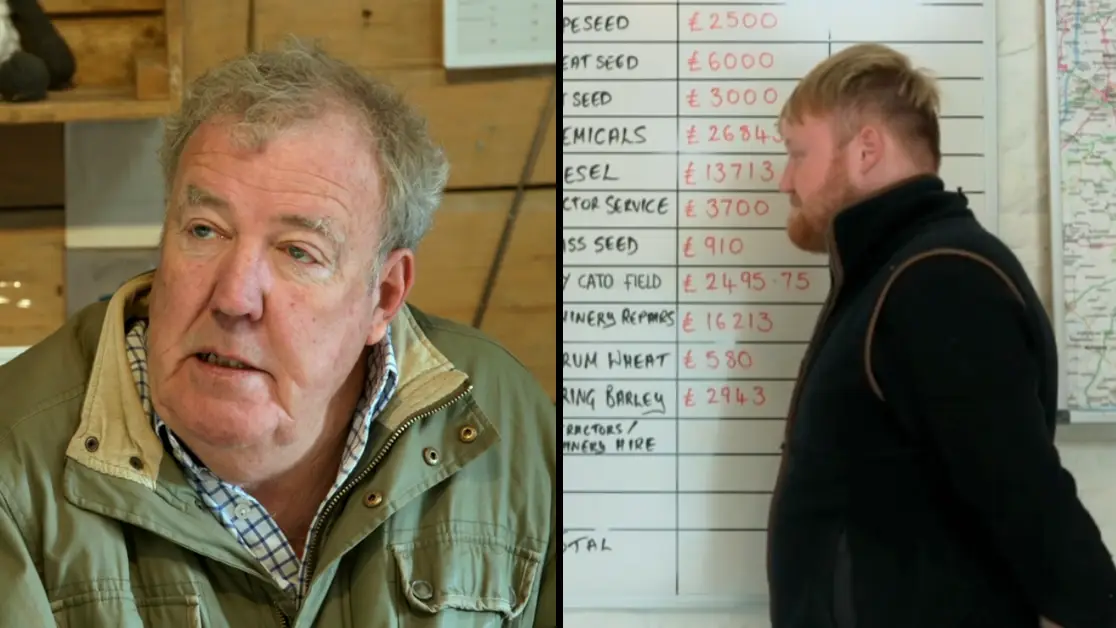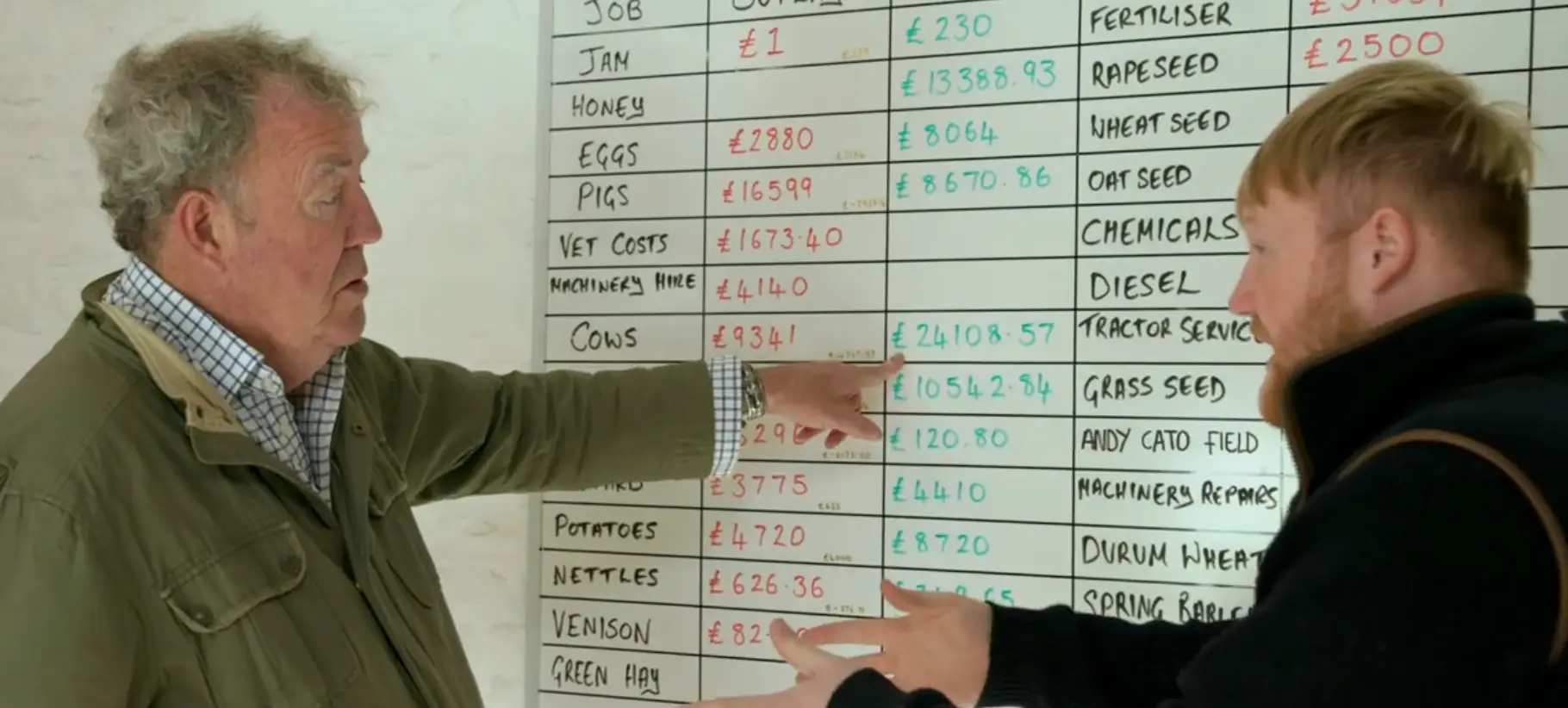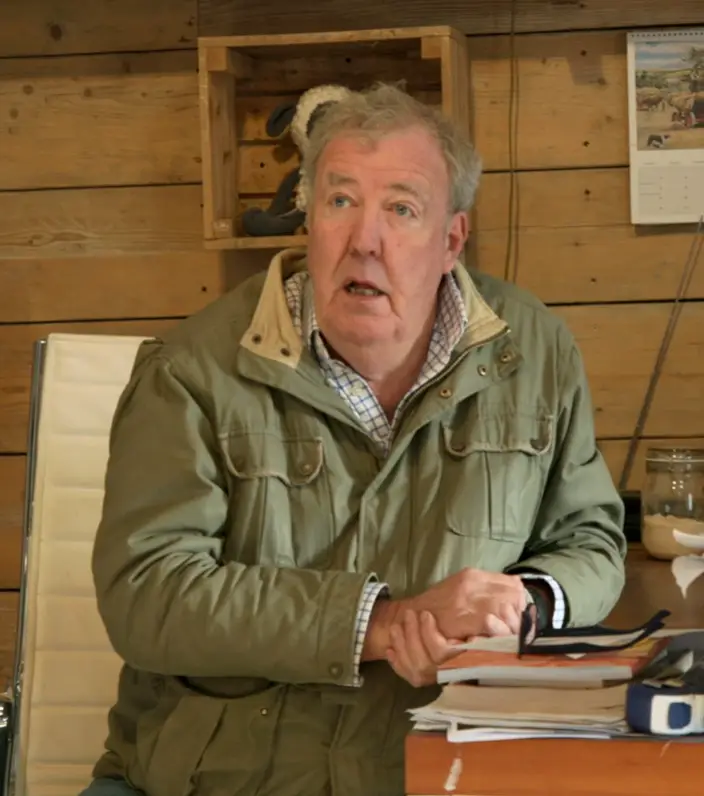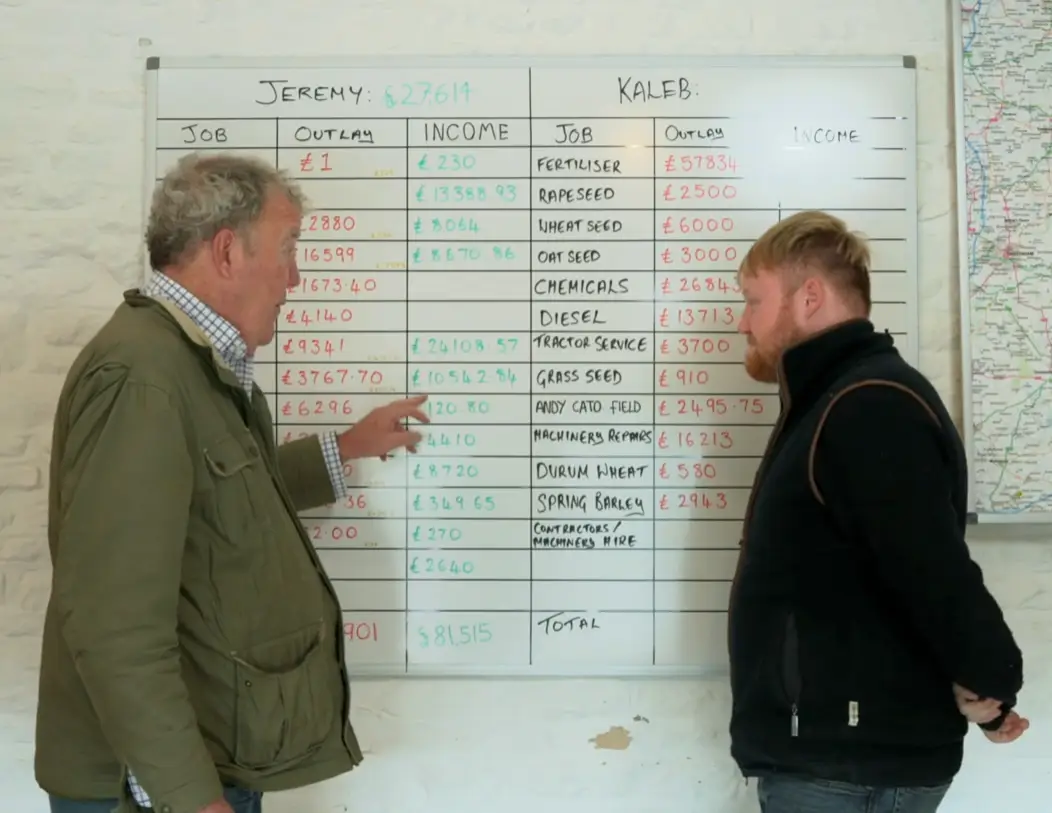
Fans of Clarkson's Farm have been left shocked at the money earned by Jeremy on his Diddly Squat Farm during the third season of the hit Amazon Prime Video show.
Returning to Prime Video early in May, it has been watched by millions of fans eager for another trip to the Cotswolds to see what the former Top Gear man is up to five years after taking over the direct running of the 1,000-acre land.
Season three sees us follow Clarkson's friend and employee, Kaleb Cooper, as he is promoted to farm manager at Diddly Squat to solely look after the 500 acres of arable land (farming talk for anywhere growing crops).
Advert
This is so that Clarkson can focus on his season-long plan to 'farm the unfarmed', with roughly half of all total land on the farm not growing crops. We're talking foraging to make jams, growing mushrooms, and the introduction of pigs to Diddly Squat.
As a result, the two take up a year-long bet to see who can make the most money during the filming for the third season.
In the season finale - spoilers incoming - it is revealed that Jeremy made a total of £27,614 profit from his alternative farming initiatives. This included almost £14,000 profit in honey alone, nearly £15,000 profit in cows, and a £6,000 loss on goats.
But it was Kaleb that won the wager, bringing in a total of £44,987 and putting total farm profits at £72,601 for the year.
"We'll go to the pub today then," Kaleb joyfully says.

But farm agronomist Charlie Ireland interrupts: "As you know farms always demand cash and we've started next year's cycle so I need all of that to fund the seed, fertiliser and the sprays. Every single penny. The seed, ferts and sprays. That's not even covering the contracting charge."
"So I'll take you for a pint then," Kaleb jokes to Clarkson.
Jeremy then makes a serious point, explaining: "I'll tell you something else as well. If I hadn't farmed the unfarmed, we'd be in trouble. The other thing as well is that, again, I'm in the fortunate position of having other income streams.
"But if you're a normal farmer and this is your full-time and only job, you get two years where you don't make any money, you're screwed. Because of the fluctuations we saw in the price of wheat and the price of fertiliser, you don't know where you are.

"You can't plan. A butterfly can flap its wings in China and you go bankrupt. You used to have a relatively stable income in terms of subsidies but they're going.
He later says: "It meant we'd gone through a lot to earn nothing at all."
Over on Reddit, fans of the show were left shocked at how little profit was made.
Speaking about Kaleb's takings, one user said: "A farm making only £44,000 for all that work is a joke. How are farmers actually meant to sustain anything? And we wonder why our food is getting so much more expensive."
Another replied: "It's how much money they made before subsidies. It shows how little money farmers actually get without them, and since the UK left the EU, a large amount of those subsidies went away, with a pretty big risk of them dropping even further right now.

"In total for season three, they made £72,601 profit, which all immediately had to be spent for next years crops. Had they not farmed the unfarmed bits and if it weren't for subsides and Jeremy Clarkson's other income sources, they would have been completely f**ked.
"It's why Clarkson's Farm has done more good for farmers in one season than Countryfile has done in over 30 years. They even said at the end 'if you have two bad years in a row, you're screwed'."
A third added: "Don't forget in the costs and maths Jezza doesn't take a wage from the farm either, and neither does Lisa by the looks of it."
And a fourth user wrote: "It’s highlighting the plight to everyday farmers. They work all year and are no better off than they started."
Clarkson's Farm can be streamed on Prime Video now.
Topics: Amazon, Amazon Prime, Business, Clarkson's Farm, Documentaries, Jeremy Clarkson, Money, TV, TV and Film